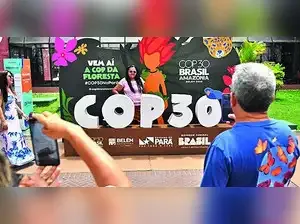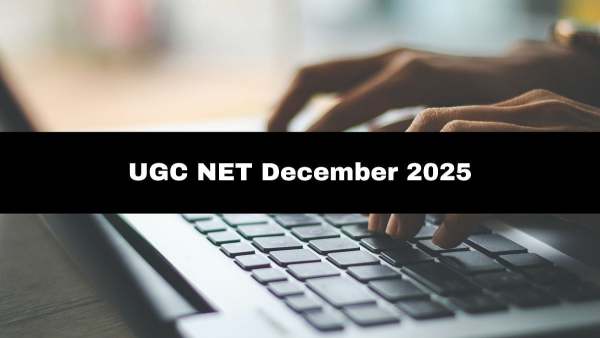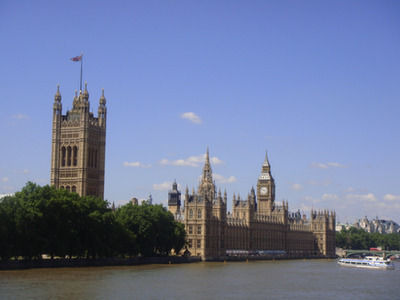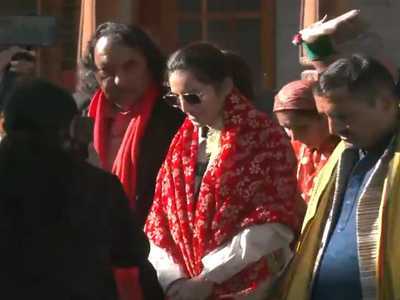Belem, Brazil: Negotiators from nearly 200 countries have been arriving in the Amazonian city of Belem in northeast Brazil for the 30th UN climate conference (COP30), which opens on Monday. They now have less than a day to avoid a rocky start by finding a compromise on whether to formally include discussions on accelerating greenhouse gas emission reductions and on the obligation of developed countries to provide resources to developing nations to enable more ambitious climate action.
Despite several rounds of consultations led by the COP30 presidency, differences remain on how these two broad issues should be reflected in the formal agenda for the two-week conference. Substantive negotiations cannot begin until the agenda is agreed.
The draft COP30 agenda includes key items related to adaptation, gender and climate, just transitions, and implementation of the 2023 global stocktake outcomes. However, it does not currently include formal discussions on scaling up emission reductions consistent with limiting warming to 1.5°C, nor on assessing the impact of existing mitigation efforts. It also does not provide for structured engagement on financial support from developed to developing countries - support considered essential for climate action in the Global South.
Four proposals have been submitted to address this gap, and a decision on their inclusion will be taken during the COP30 opening plenary. Last week, the European Union proposed a structured discussion on countries' biennial transparency reports (BTRs), which track implementation of national climate targets. This would help identify effective approaches and barriers. The EU proposal complements that of the small island states, which call for dedicated discussions on the UNFCCC NDC synthesis report to assess collective progress toward the 1.5°C limit and define follow-up actions through 2030.
Two further proposals, focused on support for developing countries, have been submitted by the Like-Minded Developing Countries (LMDC) group - which includes China, India, Saudi Arabia, Egypt and Bolivia. The LMDC seeks a dedicated discussion on the obligations of developed countries to provide public finance, and another on unilateral trade measures such as the EU's Carbon Border Adjustment Mechanism (CBAM), which they argue imposes burdens on developing countries without accompanying support.
The divergence does not fall neatly along developed-developing lines. Small island states prioritise rapid emissions cuts to keep 1.5°C within reach. The LMDC argues that such discussions risk creating a top-down approach inconsistent with nationally determined targets.
For the EU - balancing internal politics and competitiveness concerns - an outcome that does not address emissions efforts by major developing economies would be politically difficult.
The Brazilian COP30 presidency argues that the proposals are "different sides of the same coin" and can be reframed into a constructive negotiation track that advances the Paris Agreement goals.
"The ambition gap is related to trade and to climate finance. If we are to close these gaps, we need more international cooperation. Unilateral measures are not the way," said Tulio Andrade, COP30 Chief Strategy and Alignment Officer and former chief negotiator for Brazil. "Trade can play a key role in scaling up climate action, and climate finance is crucial not only to foster higher ambition but also to accelerate implementation."
Heads of delegation will continue talks through Sunday to try to reach a compromise.
Despite several rounds of consultations led by the COP30 presidency, differences remain on how these two broad issues should be reflected in the formal agenda for the two-week conference. Substantive negotiations cannot begin until the agenda is agreed.
The draft COP30 agenda includes key items related to adaptation, gender and climate, just transitions, and implementation of the 2023 global stocktake outcomes. However, it does not currently include formal discussions on scaling up emission reductions consistent with limiting warming to 1.5°C, nor on assessing the impact of existing mitigation efforts. It also does not provide for structured engagement on financial support from developed to developing countries - support considered essential for climate action in the Global South.
Four proposals have been submitted to address this gap, and a decision on their inclusion will be taken during the COP30 opening plenary. Last week, the European Union proposed a structured discussion on countries' biennial transparency reports (BTRs), which track implementation of national climate targets. This would help identify effective approaches and barriers. The EU proposal complements that of the small island states, which call for dedicated discussions on the UNFCCC NDC synthesis report to assess collective progress toward the 1.5°C limit and define follow-up actions through 2030.
Two further proposals, focused on support for developing countries, have been submitted by the Like-Minded Developing Countries (LMDC) group - which includes China, India, Saudi Arabia, Egypt and Bolivia. The LMDC seeks a dedicated discussion on the obligations of developed countries to provide public finance, and another on unilateral trade measures such as the EU's Carbon Border Adjustment Mechanism (CBAM), which they argue imposes burdens on developing countries without accompanying support.
The divergence does not fall neatly along developed-developing lines. Small island states prioritise rapid emissions cuts to keep 1.5°C within reach. The LMDC argues that such discussions risk creating a top-down approach inconsistent with nationally determined targets.
For the EU - balancing internal politics and competitiveness concerns - an outcome that does not address emissions efforts by major developing economies would be politically difficult.
The Brazilian COP30 presidency argues that the proposals are "different sides of the same coin" and can be reframed into a constructive negotiation track that advances the Paris Agreement goals.
"The ambition gap is related to trade and to climate finance. If we are to close these gaps, we need more international cooperation. Unilateral measures are not the way," said Tulio Andrade, COP30 Chief Strategy and Alignment Officer and former chief negotiator for Brazil. "Trade can play a key role in scaling up climate action, and climate finance is crucial not only to foster higher ambition but also to accelerate implementation."
Heads of delegation will continue talks through Sunday to try to reach a compromise.








